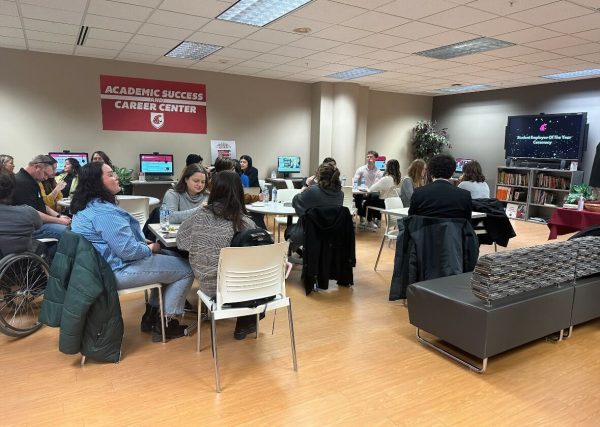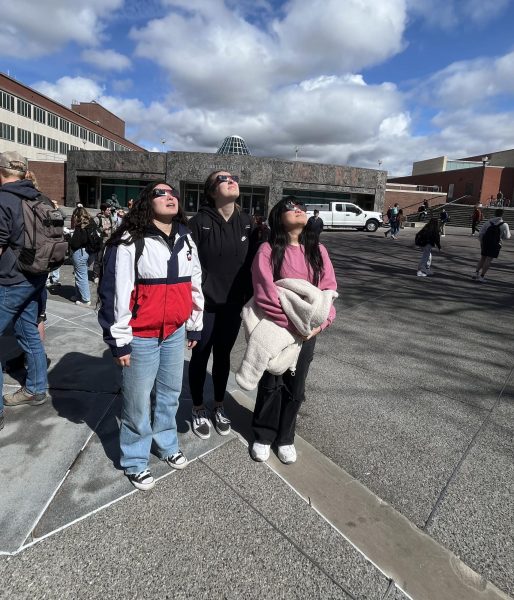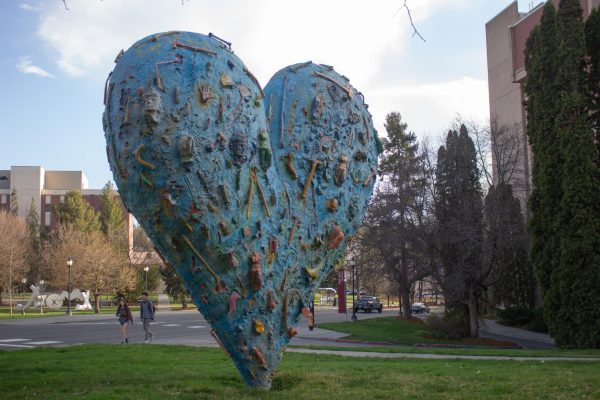CAHNRS faculty eager for new dean
Colleagues at current school praise Wright as fair, able leader
February 1, 2018
As WSU’s agricultural college transitions leadership, faculty are optimistic about working with the new dean to mend what some have called a toxic academic environment.
Last semester, numerous professors and researchers spoke out against what they considered chronic academic freedom issues in the College of Agricultu

ral, Human and Natural Resource Sciences. Now, with Andre-Denis Wright set to take the helm on June 1, they feel the college has a chance for change.
“Everyone seems pretty excited,” said Kulvinder Gill, a professor in the Department of Crop and Soil Sciences. “He’s being perceived as a doer.”
Wright is currently the director of the School of Animal and Comparative Biomedical Sciences under the University of Arizona’s College of Agriculture and Life Sciences. Mike Trevisan, dean of WSU’s College of Education and chair of the search committee that selected dean candidates, said Wright is a top-notch researcher.
He has spent much of his career studying ways to sustainably increase food production by reducing the amount of methane that cattle produce.
Peder Cuneo, who said he is the longest-tenured professor in Wright’s department, described Wright as a “tremendous leader.” He cares about people, Cuneo said, and has been an innovative and transparent administrator.
“I’m really impressed with him,” Cuneo said, “and I’m really sad to see him go.”
When he arrived at Arizona, the school he now leads had just formed. Sean Limesand, a professor in the school, said Wright did a good job of integrating two existing departments into the new school. He established two programs, Animal Biotechnology Industry and Food Safety, modernizing courses and giving students a more direct path to specific fields of work.
Limesand praised Wright’s leadership, saying WSU is “getting lucky.” He said Wright is willing to listen, and that one of his major strengths is identifying solutions.
“He kind of thrives on problems,” Limesand said, “and solving problems.”
And Gill said his problem-solving skills will be put to the test in his new position. Gill and others said in September that the college administration has left many faculty members discontented and fearful in recent years. They described various situations in which the university punished researchers — and sometimes pressured them to resign — for running afoul of industry stakeholders or for voicing their concerns.
Tension between industry and academia is common at land-grant universities, Trevisan said. All of the candidates, with their backgrounds in similar areas of other universities, were familiar with the problems CAHNRS faces.
Trevisan said media coverage of academic conflicts often appears one-sided, because administrators are advised by university attorneys not to comment on personnel matters. But in most instances, he said, they are simply following policies “to protect the university and to protect individuals.”
He added that it may be difficult for those individuals to see administrators’ actions in this light, as they may be angry with the way they’ve been treated. This has been the case with many researchers in CAHNRS. Gill and multiple others have said faculty morale has declined substantially.
“I think [Wright is] inheriting a mess that he needs to clean up,” Gill said. “He will have his plate full.”
Trevisan said Wright is a “high-caliber individual,” capable of serving in what is arguably the most high-profile deanship at WSU.
“I think he resonated strongly with people,” Trevisan said. “I think he’ll be a strong advocate for CAHNRS.”
The college houses 16 academic units, employs 1,200 faculty and staff, and enrolls about 3,000 students, making it one of WSU’s largest units. Research funding to CAHNRS for 2016 totaled about $83 million, more than 40 percent of the university’s overall extramural research funding, according to a WSU News release.
Gill noted that Wright has not served as a dean before, but added that his lack of higher-level administrative experience is not necessarily a bad thing. Provost Dan Bernardo selected Wright from a candidate pool that included a dean, an associate dean and an associate vice president.
Gill emphasized that all the CAHNRS faculty he has spoken with are eager to welcome Wright, and to do their part to address any shortcomings in the college.
“I think he will get general support from the faculty,” Gill said, “because we all want things to get better.”





















